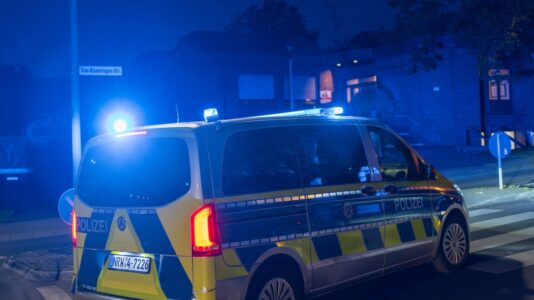Thousands of Czech police officers, firefighters, and members of other security forces unions gathered outside the interior ministry in Prague on Thursday to demand higher wages and improvements to staffing and working conditions.
The protest, organized by the Union of Security Forces (UBS), drew an estimated 1,500 to 2,000 participants, with unions representing police, firefighters, customs officers, prison staff, and municipal police joining forces to voice their frustrations.
As reported by Echo24, the protesters directed their anger at Interior Minister Vít Rakušan, booing and whistling as he addressed them. Rakušan attempted to outline steps the government is taking to address their concerns, including a promised salary increase and efforts to reduce police bureaucracy. However, his assurances were met with skepticism and derisory chants from the crowd.
Aleš Lehký, chairman of the UBS, spoke to the crowd, emphasizing the need for firefighters to be promoted to higher pay grades and for police departments to receive relief from bureaucratic burdens. “Firefighters deserve to be in at least the fourth tariff class,” said Lehký, adding that overworked police officers also need urgent support.
While Lehký acknowledged Rakušan’s willingness to engage with unions — contrasting him with past ministers who ignored such issues — he stressed that the promises made so far fall short of what is needed to address the challenges facing security forces.
Rakušan’s speech to the protesters, in which he promised a stabilization allowance of 1,000 crowns (€39.50) in addition to a previously pledged salary increase of 1,500 crowns (€59.26), was met with more boos and whistles. He reiterated his commitment to improving conditions and reducing bureaucracy but acknowledged the financial constraints faced by the government.
“I guarantee you that you will see 2,500 crowns (€98.76) for the month of January in your paychecks,” Rakušan told the crowd. He also outlined a medium-term budget plan that includes 5 percent annual increases in 2026 and 2027, along with continued stabilization allowances. Protesters, however, dismissed his words as “fairy tales.”
Beyond wages, the unions highlighted a personnel crisis and excessive bureaucracy within the police force as major challenges. Lehký criticized the current allocation of funds and called for a larger portion of the salary increase to be included in the tariff component rather than allowances. He also underscored the importance of meaningful reforms to address overburdened police departments.
Rakušan attempted to assuage these concerns by announcing the formation of a task force to work on reducing bureaucracy within the police, but this proposal also failed to quell the protesters’ anger.






